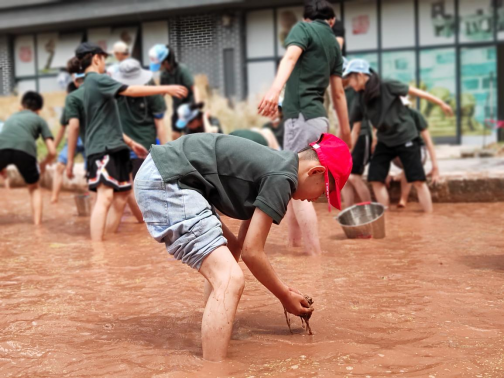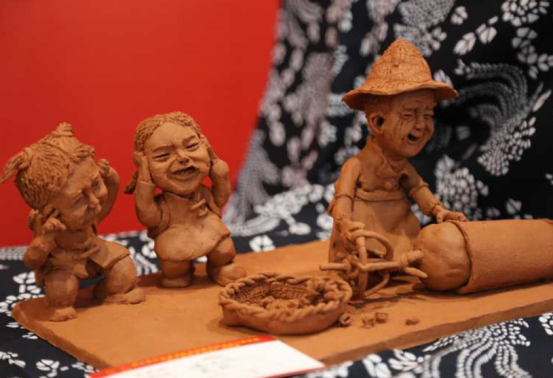
新重庆>
双语资讯
Xu Zhehao, a third-grader at the Qinghe campus of Tongxin Primary School, recently had his first experience catching loach (fish) in a physical labor class.“They are so slippery to touch and easily slip out of hands even when I hold it,” the urban kid said that it was a fun class, and he tasted the joy of physical labor.

Physical labor was a highlight in the curriculum standards for compulsory labor education (2022 edition) recently issued by the Ministry of Education of China, according to this, agriculture is one of the topics for students to learn and explore. As the curriculum standards triggered a new wave of physical labor classes across the country, some media call it the“coming back” of the physical labor class, which is familiar to the post-70s and post-80s in China.
“Coming back” is an inaccurate description for Tongxin Primary School in Chongqing Liangjiang New Area, where the appreciation and love of physical labor have long rooted in its educational philosophy. According to Qin Bo, principal of Tongxin Education Group, the school values nature and appreciates the similarity between agriculture and education, where patient and intensive cultivation is needed.
When the Qinghe campus of Tongxin Primary School was initiated in 2020, it kept the wild plants on the spot and planned more than three acres as farmland. So far, regular agricultural plants in the countryside can be seen at this urban campus throughout the year.

Since its establishment, the Qinghe campus has kicked off each semester with a special class, where students had the pleasure of physical labor. In 2020, the first class of the autumn semester took place in the farmland, where students reap and thresh the grains with the help of teachers.
A student said, breathed heavily after the first time trying farm work, it is true when the Chinese poem says each grain comes from hard work, and he would never waste food again.
This is an embodiment of Qin’s concept that real life is the best scenario to teach.“the love and appreciation of physical labor should be taught to students not only in labor classes but also in everyday teaching activities,” Qin added. The school has more than 30 museum-style shared spaces, which enable immersive learning from real-life scenarios.
The Qinghe campus started the spring semester with a ceramics class this year. Qin believes ceramics is a way of talking to nature, saying,“It is what we pursue in education for each person to love and get close to nature, and appreciate life.”
(BY Guo Shuyu, Liangjiang New Area Media Center)